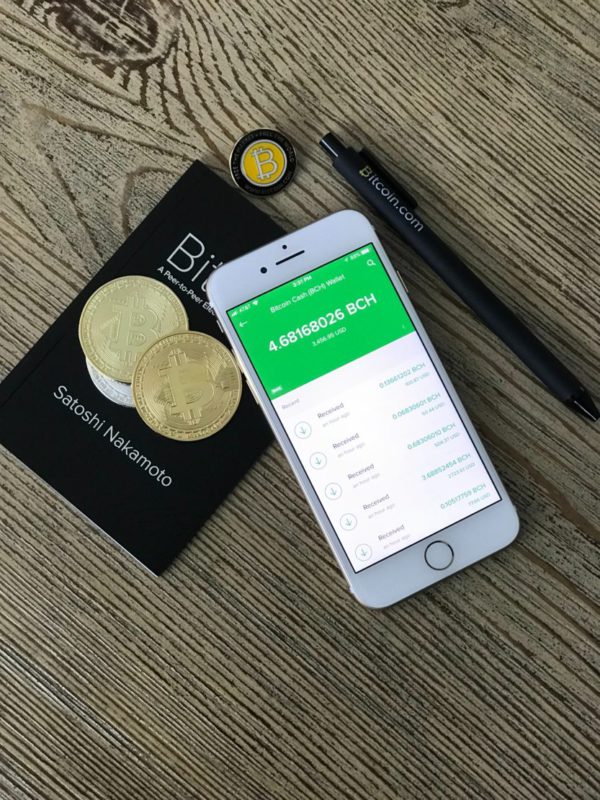What Is “Recession” And Why Should Bitcoin Care?
Nowadays, everyone is talking about the recession—or the “R word,” as politicians call it—for a good reason.
According to today’s gross domestic product report, if you paid careful attention in macroeconomics class, you’ll probably start fretting now that the U.S. economy shrunk for a second quarter.
Many economics students eventually discover that “two consecutive quarters of declines” is a recession’s definition. But it varies according to who is asking. And if you pay attention to policymakers now, they cite a different criterion.
A recession is defined by more than just GDP, according to the National Bureau of Economic Research (NBER), which is consulted by most analysts and U.S. policymakers when evaluating the timing of economic cycles.
The National Bureau of Economic Research (NBER) defines a recession as “a large fall in economic activity that is spread across the economy and that lasts more than a few months.” In contrast to the simple “two quarters” definition, the inherent subjectivity allows policymakers, particularly the Federal Reserve, much-needed leeway.
Former Wall Street Journal economics editor and senior fellow in economic research David Wessel commented, “It was easy to comprehend, it was black and white.” The NBER definition is somewhat ambiguous, and for a good reason—there are many different variables.
Going back to when the NBER was established in 1978, “two consecutive quarters of GDP decrease” was the only criteria available, according to Wessel.
GDP could provide insight into the state of the economy. However, it is frequently changed, with an average revision rate of 1.5% over time. This is why, even while the “two quarters” norm still holds most of the time, the NBER’s approach may offer a more helpful evaluation.
According to Wessel, “the gap between the output and income sides is particularly significant in the first quarter of this year, and that gives some people the idea that GDP is going to be revised and may not truly be negative in the first quarter.”
In a lengthy blog post this week, two assistant secretaries for the U.S. Treasury Department laid out what they called “substantial evidence” that the “economy is not currently in a recession,” even though GDP shrank for two consecutive quarters.
We all know that a recession is defined as two consecutive quarters of negative GDP growth, so why is the administration of President Joe Biden “trying to redefine recession,” according to a Fox News correspondent this week? According to the spokeswoman, “that’s not the definition.”
Similarly, during a press conference last week, a reporter questioned Federal Reserve Chair Jerome Powell if he would consider the U.S. economy to be in a recession if GDP decreased in the second quarter.
Powell stated, “The Fed doesn’t make a judgement on that.” And that doesn’t seem to be the case here. “However, if you consider what a recession really is, it’s a broad-based fall across many industries that last for more than a few months and there are several particular tests in it,” the author writes.
In support of Powell’s argument, Treasury Secretary Janet Yellen stated on Thursday that a “semantic struggle” about whether the nation is experiencing a recession should be “avoided” and that the current state of the economy does not constitute a recession.
Also, read – 5 Strategies To Deal With Bitcoin Downcycle For Investors
In what ways does this affect bitcoin?
Does it even matter that the United States is in a recession now for cryptocurrency traders, specifically bitcoin (BTC) traders?
Most likely, the answer is negative.
According to Jeff Dorman, chief investment officer at the digital asset management Arca Funds, bitcoin is not a “store of wealth” per se but rather a “store of surplus value.” “It doesn’t matter if we’re in a recession or not.”
According to Dorman, negative wealth caused by dwindling business earnings, expenditure, and confidence reduces demand for bitcoin, but the largest cryptocurrency by market cap remains unaffected structurally.
According to him, Bitcoin is little more than a call option in a scenario in which it replaces fiat money as an actual medium of exchange. “As a result, bitcoin’s price simply reflects whether or not that probability rises or falls, and from that perspective, a recession might theoretically increase the probability of investors looking for a substitute for government money,” said one analyst. Many crypto analysts refer to government-issued money not backed by tangible assets, such as gold or fiat.
Considering that most markets, including those for cryptocurrencies, have already experienced significant losses this year as a result of macroeconomic uncertainty, it is unclear if, given this period, the term “recession” or not will have any impact.
Bob Iacchino, co-portfolio manager at Stock Think Tank and chief strategist at Path Trading Partners, declared, “I don’t like recessions. “I don’t care what you call it; you’re just labeling a period and an economic period. Either they are in pain, or they are not.
Since Powell’s dovish press conference on Wednesday and the release of Thursday’s GDP figure, Bitcoin and most other cryptocurrencies have increased. Late Thursday, Bitcoin was trading at $24,000, up 8% from the previous day.
According to Paul Eisma, head of trading at XBTO Group, “the risk markets rally may be prematurely pricing in a potential delay in rate increases in response to the dismal GDP print.” We live in a data-driven world. Therefore risk assets, such as bitcoin and cryptocurrencies, will benefit from any economic data that suggests a slowdown in demand and growth or a lowering of inflation expectations.
Stay informed with daily updates from Blockchain Magazine on Google News. Click here to follow us and mark as favorite: [Blockchain Magazine on Google News].
Get Blockchain Insights In Inbox
Stay ahead of the curve with expert analysis and market updates.
latest from tech
Disclaimer: Any post shared by a third-party agency are sponsored and Blockchain Magazine has no views on any such posts. The views and opinions expressed in this post are those of the clients and do not necessarily reflect the official policy or position of Blockchain Magazine. The information provided in this post is for informational purposes only and should not be considered as financial, investment, or professional advice. Blockchain Magazine does not endorse or promote any specific products, services, or companies mentioned in this posts. Readers are encouraged to conduct their own research and consult with a qualified professional before making any financial decisions. The featured image used is just a creative depiction of the title and it does not intend to hurt sentiments of any person or institution. If it hurts anyone sentiments, please do not hesitate to reach out to Blockchain Magazine.

 Bitcoin
Bitcoin  Ethereum
Ethereum  XRP
XRP  Tether
Tether  Solana
Solana  USDC
USDC  Dogecoin
Dogecoin  Cardano
Cardano  Lido Staked Ether
Lido Staked Ether  TRON
TRON  Chainlink
Chainlink  Avalanche
Avalanche  Wrapped stETH
Wrapped stETH  Wrapped Bitcoin
Wrapped Bitcoin  Stellar
Stellar  Sui
Sui  Toncoin
Toncoin  Hedera
Hedera  Shiba Inu
Shiba Inu  WETH
WETH  Polkadot
Polkadot  LEO Token
LEO Token  Litecoin
Litecoin  Bitget Token
Bitget Token  Bitcoin Cash
Bitcoin Cash  Uniswap
Uniswap  Hyperliquid
Hyperliquid  USDS
USDS  Official Trump
Official Trump  Wrapped eETH
Wrapped eETH  Pepe
Pepe  NEAR Protocol
NEAR Protocol  Ethena USDe
Ethena USDe  Aave
Aave  Aptos
Aptos  Internet Computer
Internet Computer  Ethereum Classic
Ethereum Classic  Ondo
Ondo  Mantle
Mantle  WhiteBIT Coin
WhiteBIT Coin  Monero
Monero  Cronos
Cronos  POL (ex-MATIC)
POL (ex-MATIC)  Jupiter
Jupiter  Render
Render  Dai
Dai  MANTRA
MANTRA  Layer One X
Layer One X 




